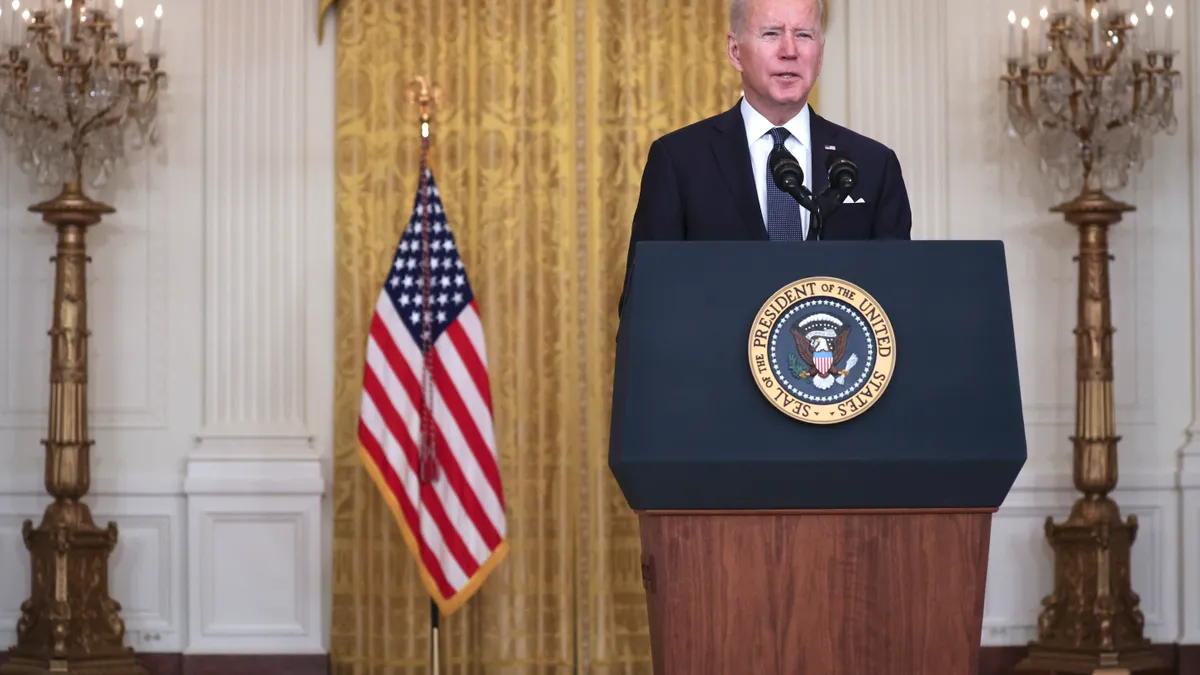Dive Brief:
- The U.S. and allied nations imposed sanctions on high-tech exports to Russia, a move announced by the White House on Thursday in response to Russia's invasion of Ukraine.
- "Between our actions and those of our allies and partners. We estimate that we'll cut off more than half of Russia's high-tech imports," President Joe Biden said Thursday, announcing a broad package of sanctions.
- The U.S. government said it will restrict "sensitive U.S. technologies produced in foreign countries using U.S.-origin software, technology, or equipment" to Russia.
Dive Insight:
The Ukraine invasion threatens spillover cyber risk, with critical industries on high alert. However, sanctions on tech exports telegraph the long-term disruptions to come.
Crimping Russia's ability to import U.S. technology wouldn't have an immediate effect on IT operations in Russia, said John Annand, principal research director at Info-Tech Research. But sanctions could slow the development of new technologies, such as radar or missile technology.
Closed off from products from the U.S. and allied nations, the sanctions could channel Russia to develop new technology.
"There's nothing like necessity being the mother of invention," Annand said. "Maybe this will be a long-term thing that forces [Russia] to build their own capabilities in a way that they haven't really been a leader in quite some time."
On the flip side, U.S. business reliance on Russian IT providers is "pretty minimal," said Annand. The U.S. government cut ties with Russian cybersecurity software provider Kaspersky in 2017 following espionage claims.
Ultimately, the fear is that Russia could launch retaliatory cyberattacks against U.S. or NATO allies in response to the slate of sanctions. Biden also said the administration has been working with the private sector to batten down cyber defenses and strengthen the ability to respond to potential Russian cyberattacks.
"Sanctions are going to invite retaliation," said Annand.















